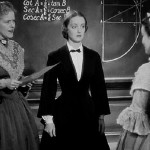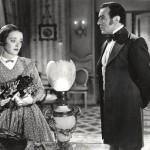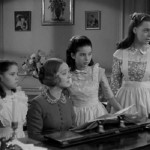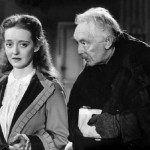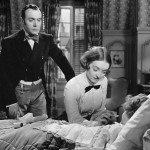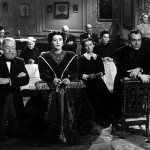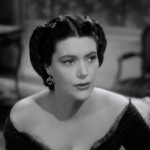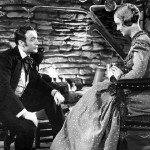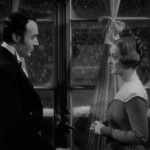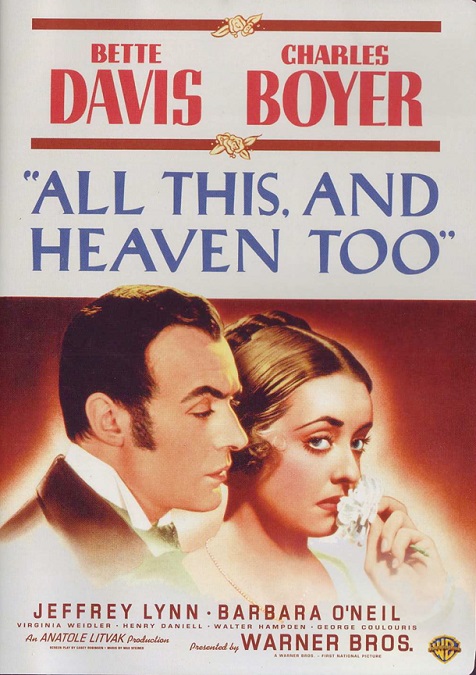
All This, and Heaven Too – 1940
Well, here we are in a new year and a new decade. We start off with All This and Heaven, Too, Starring Bette Davis and Charles Boyer. It was a period piece that took place in 1845, which is saying a lot. It took place nearly 100 years before the film was made.
It was a charming little story about forbidden love, utter lunacy, and murder. It had potential, but for me, it failed, and here’s why. The movie was about 2 and a half hours long, but it could have easily been told in an hour and a half. There was just so much build up and character development that didn’t all seem necessary.
OK, in brief, Mademoiselle Deluzy-Desportes, played by Davis, applies for a job as a governess in the house of Charles, the Duc De Praslin, played by Boyer. Charles’ rich but insane wife is the Frances, the Duchess de Praslin, played by Barbara O’Neil. She is mentally, physically, and emotionally abusive to her husband and children. She is obsessive, possessive, jealous, and emotionally unstable. Mademoiselle is hired to care for and educate the 3 girls, and the young boy.
The crazy wife takes an immediate dislike to the new governess, claiming that she is turning her children against her. Of course, Mademoiselle goes out of her way to try to bring them together, but the Duchess is not completely in touch with reality. On top of that imagined betrayal, she believes that the young governess is also stealing the affections of her husband. But as chance would have it, this one turned out to be true, though the growing affection between Charles and Mademoiselle is never acted upon.
In the end, the Duchess dismisses Mademoiselle and vows eternal hatred for her. In an anger and a madness all his own, the Charles murders Frances. Mademoiselle is arrested in connection with the murder, but Charles takes his own life before admitting his love for her, thus confirming a motive. She bravely denies her love for him and is released, though publicly disgraced. Still, she has the courage to go on with her life. The end.
Davis did just fine, though it was interesting to see her play a character that didn’t have a mean or vicious bone in her body. She seemed to be a victim in several different ways: a victim of love, a victim of hate, and a victim of scandal. But for me, her character seemed almost too sweet to be real.
Boyer was also alright, though he was supposed to be charming, and I didn’t find him so. But one thing about his performance that I liked was the fact that as melancholy and almost creepy as he was most of the time, he lit up in wonderful joy whenever he interacted with his children.
And speaking of the children, I have to mention something that really annoyed me. The older girls were just fine, but the little boy, Reynald played by child actor Richard Nichols, was getting on my nerves. Sure, the entire movie took place in France, and Boyer was the only one with a French accent, but Reynald’s words actually came out with a distinctly southern drawl. What?!?! Oh well.
I can forgive the children for not being able to pull off a French accent. But Barbara O’Neil didn’t even try. The character would have been more authentic if they had hired a French actress. Still, O’Neil played the emotionally unstable woman well. Her performance earned her a nomination for Best Supporting Actress, though she did not win. Her death scene was actually chilling to watch.
To the screenplay’s credit, the long build-up to the end did have the effect of making the forbidden love between Mademoiselle and Charles believable. However, I still think it could have been done in less time. So, all in all, I’m not saying that All This and Heaven, Too was a bad movie. It was just a long, slow one.
And finally, I’d like to make special mention of the eldest daughter, Isabelle because she was played by an actress that would go on to have a long and impressive career. June Lockhart, who was best known for her television roles on Lassie, Lost in Space and Petticoat Junction, did a good job, and actually stood out to me as a better child actress than the others.
